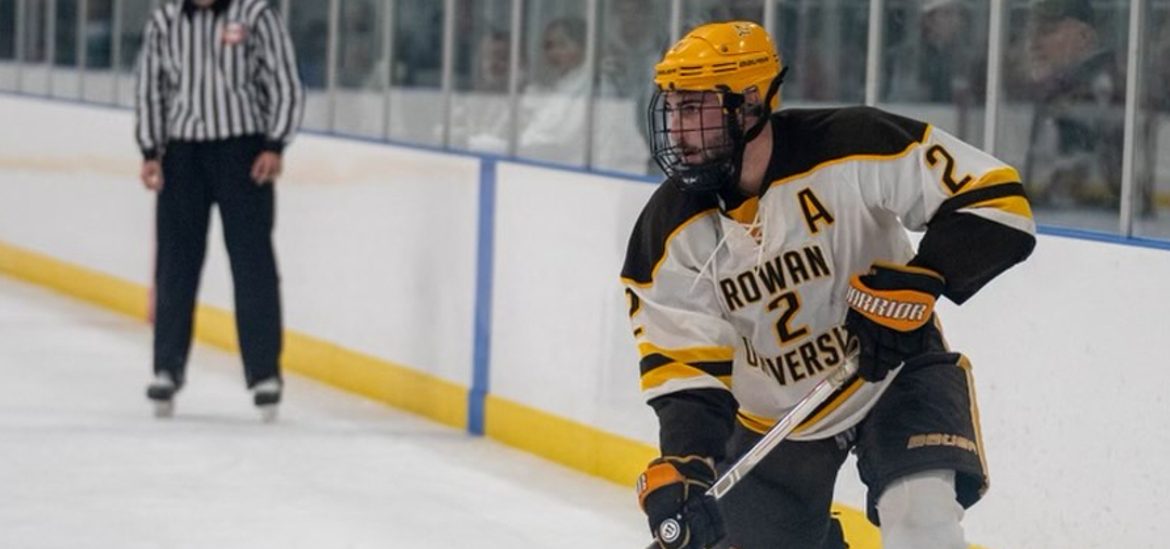Not many have the privilege of playing collegiate sports; fewer have the chance to earn the title of captain. A recent graduate of Rowan’s finance program, Jared Cohen of Wayne, NJ (Passaic County) wore the “C” after holding down the blue line for Rowan’s Men’s Hockey team for three seasons (2019-2020, 2021-2022, 2022-2023). Wearing a letter in two of the three seasons he played, Jared is a student of the game on the ice and in the locker room.
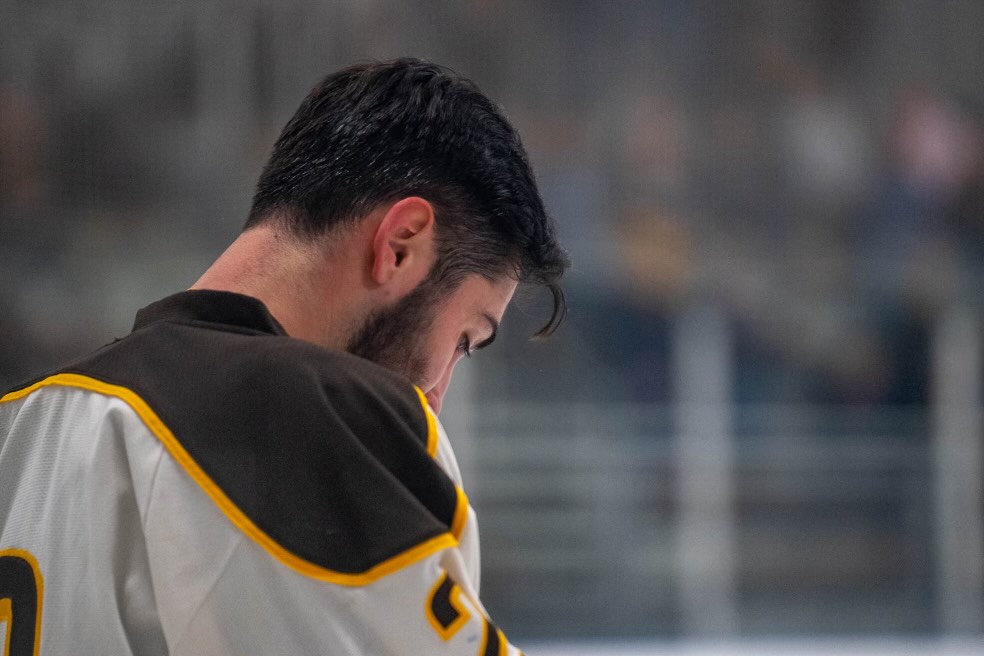
The transition from being captain on a youth team to being a rookie on the next can be challenging. Yet Jared attributes a smooth transition to the team of veteran players around him, “I didn’t really know what to expect coming in but I was fortunate enough to meet some really cool guys my first year, some older guys who really took me under their wing.” His first-year season was about finding his role, allowing himself to take in the personalities of his new teammates before finding the confidence to be vocal with the veteran players on the team. Part of being a great leader was about being a great follower: showing up and doing your job, a concept that he executed on which lead to him becoming an assistant captian his junior year.
Going into his senior year, the obvious goal was to not just make the playoffs or make a run, but to bring home a championship. On an individual level, Jared strove to become the de facto leader on the team. Going into his senior year he was one of three players who was still wearing a letter on his jersey. Wearing the “C” was a responsibility he carried at every level. Wearing it at Rowan was the last step.
Captains come in a variety of forms, some are vocal while some lead by example, but when asked what his teammates would say if asked why he should be captain he had this to say, “I think mainly they’d say I’m smart. I’m not here to be everybody’s best friend as nice as that would be; I’m here to make sure everyone does their job for the team. That’s really what it’s about. I don’t think being the captain should be anyone’s best friend, I think they should have your best interests at heart instead. Sometimes tough love is called for, and other times it’s just a sit-down conversation. But I was always transparent with everyone.”
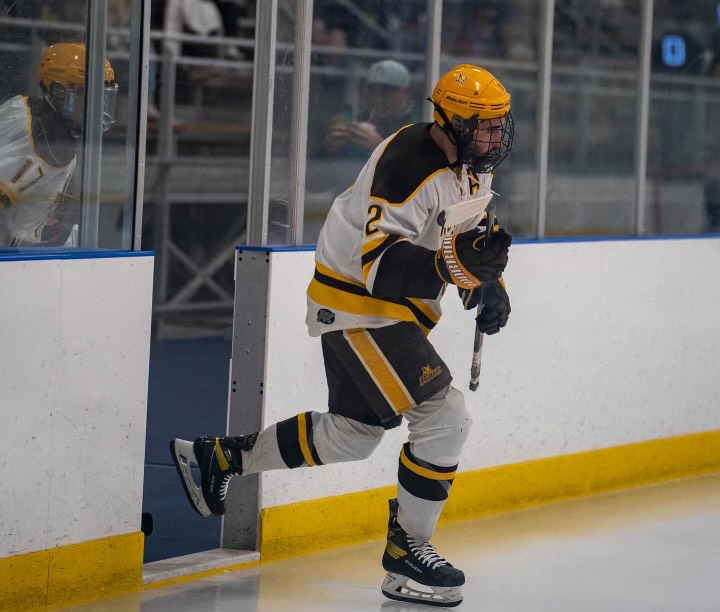
Although he’s been a captain at every level, he acknowledges that he still had a lot to learn before wearing the C. When asked about what lessons he picked up on under different captains, he had this to say, “It’s definitely just keeping the team together. I mean it’s hard to get through to everyone. You have a bunch of different types of guys on the team, strong personalities, weak personalities, but it’s my job to blend those together to make it as successful for the team as possible. It’s almost like a chef making a recipe, sometimes you’ve got to do it by feel, so that’s what being a captain requires. Especially on a college team where we’re not going to play pro after this, but everyone still wants to win and have fun doing it.”
Earning the captaincy was a season-long endeavor, but one that was worth it. Throughout the season Jared positioned himself to be the guy that both his teammates and coaches go to. He says, “I went into the season as the only returning player with a letter so that was really cool. I told my coaches in the beginning, during training camp, ‘I want the ‘C’, I want to be the guy on this team.’” After handling extreme lows and highs during the season, carrying both extremes with grace and a leader’s stoicism, the coaching staff agreed that it was time to give him the job he earned. Getting the ‘C’ was a special moment, “It was me and two or three other guys with ‘A’s on our jerseys, no one had a “C”. But I kind of knew I was the guy and I acted like it and I think the team reciprocated that. Toward the end of the season, before our playoff run, at a random coaches meeting before practice he gave me the ‘C’. He took my jersey and put it on. It was pretty cool.” Navigating the good and bad of a long season exemplified what being a leader of a team was.
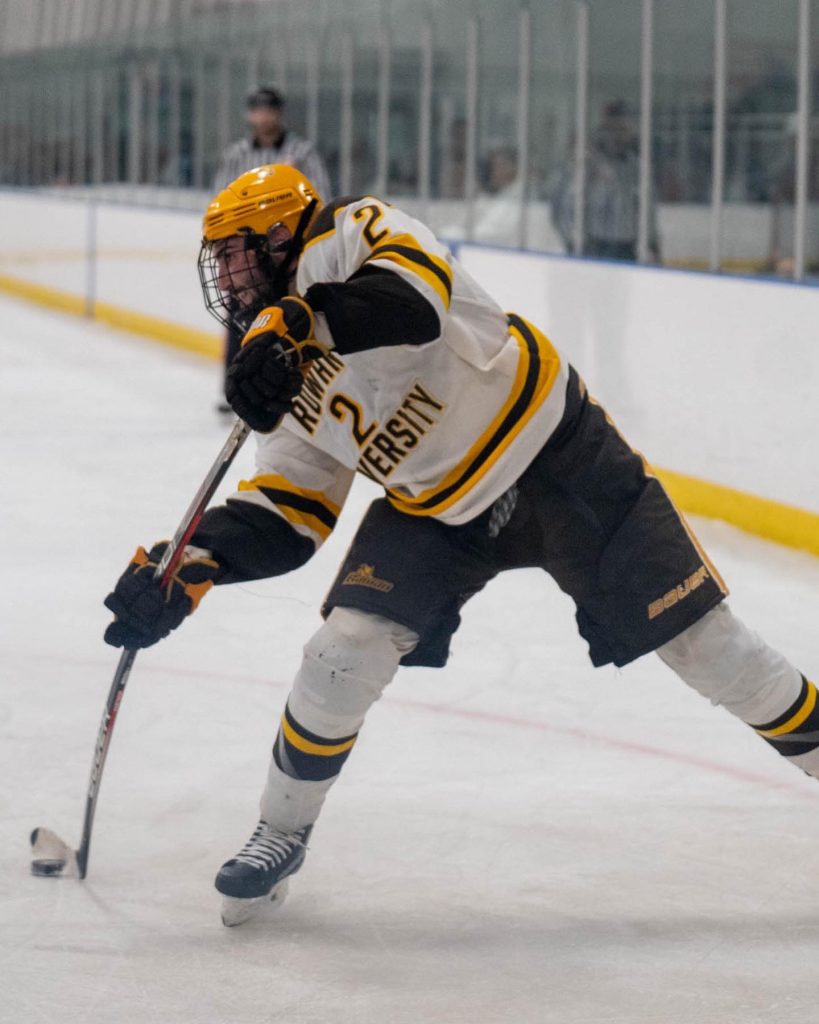
When reflecting on the better moments of his collegiate career, several moments stand out. However the memory that sticks out the most is from his freshman year, “All three years I played we won probably 70-75% of our games so I’ve definitely been on three good teams, three years of playing– we lost the COVID year. It was never really about the regular season, we always won a lot more games than we lost but come regionals times the closest we got was my freshman year. I was playing so hurt so I was just a shell of myself, we were on goal away from going to nationals. The way it works is you have to win three games in a row at regionals. We won two my freshman year, went to the third game, we gave it all we could and just fell short a little bit.” The taste of glory and being just shy of the national tournament put a fire in his belly to be better going forward.
The somber moments of sports drive individuals to elevate their game, when reflecting on the lower moments of his career, games during his senior year stood out, “We had a couple tough games against Penn State and a few others, but we knew we had a good team, we knew our record would be good in the end. So we righted the ship there, we talked about it, we talked about whatever we had to do. Toward the end of the season, when things started to go south, in hindsight it might’ve been past salvageable at that point, it might’ve been that’s what it was. We had two really bad losses, one of them being on senior night. We blew a 2-1 lead, but ended up losing 3-2 in the final minute.” However, instead of sulking, he immediately followed up by watching film to see what went wrong to put a better effort, more effective team on the ice for the next game. His philosophy embodies learning from what you did well during your best games as well as your worst game.
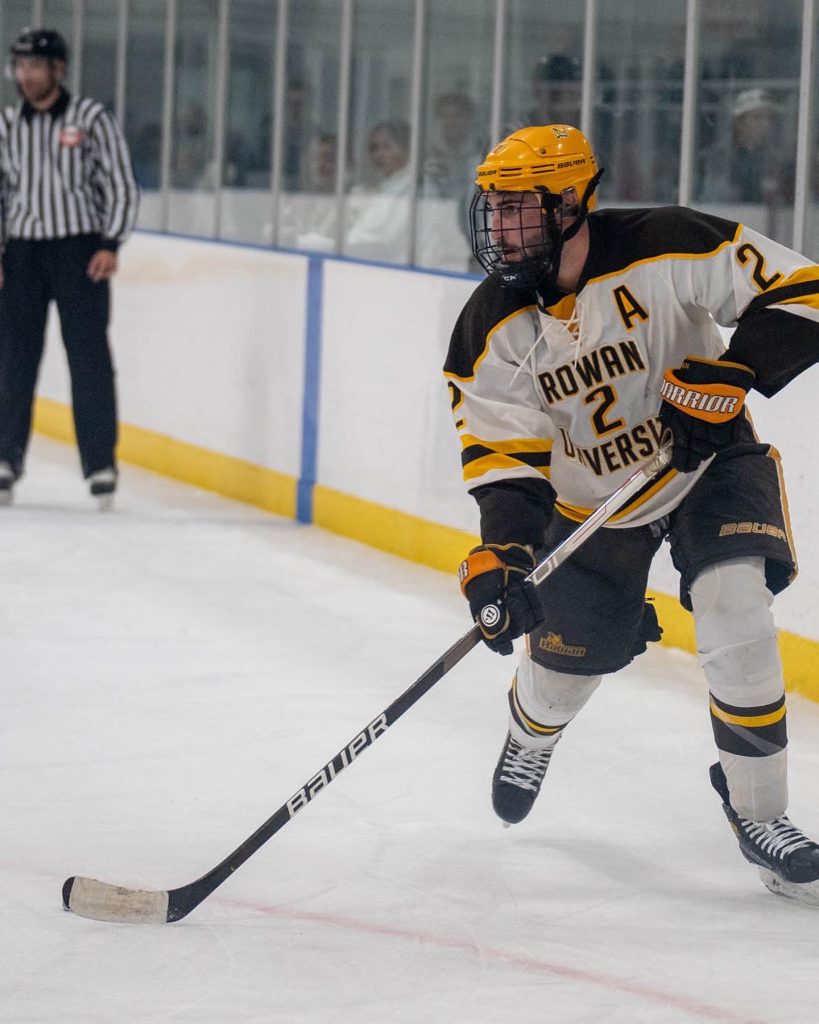
Many lessons have been learned through watching other leaders, thousands of hours of time on the ice both in game and practicing, but in the classroom as well. Being a finance major helped in a variety of ways. Some of the tools that he refined through projects in class have translated to an on ice setting, “I love to be extroverted and meet new people. I think being a leader has definitely done that. Communicating with so many guys over the years, I learned about their different styles, their likes, their dislikes. Being a finance major, it’s kind of funny, I learned to communicate with a lot of people and how to get stuff done for a team. I think that’s the most important thing I’ve learned– communication.” Embodying the spitting of a leader means drawing from a variety of lessons to apply in unconventional scenarios, something that Jared does very well.
After bleeding brown and gold for his team, after four years his collegiate and education career has come to close. Through his four years in class, 61 games and 41 points, and now a finance degree to his name, Jared Cohen has walked the stage into the professional world.
Like what you see?
Story by Thomas Ubelhoer, international studies and political science major

